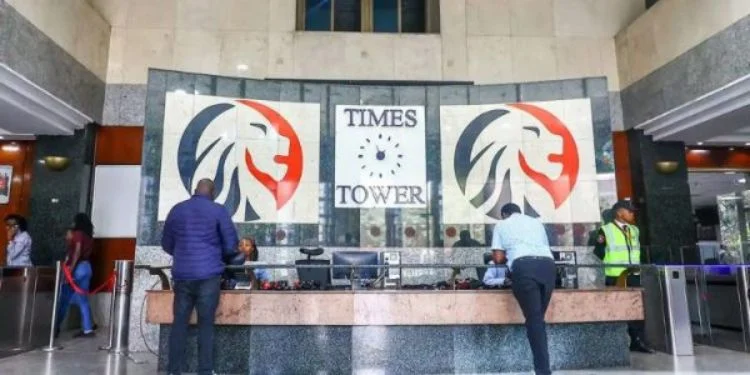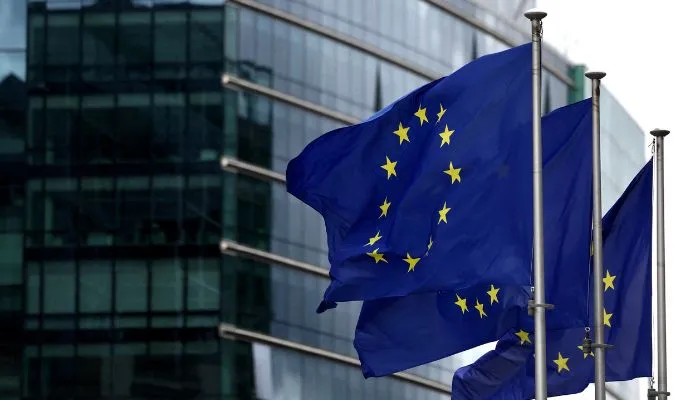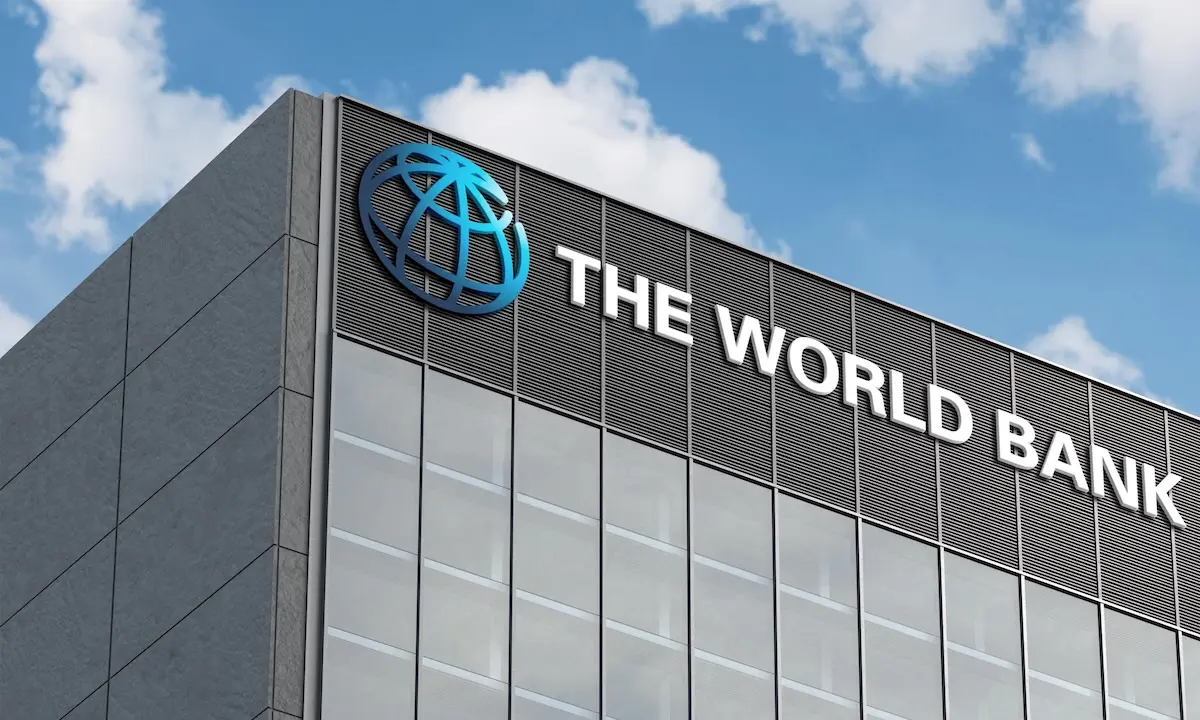Kenya has reaffirmed its commitment to pursuing a new program with the International Monetary Fund as the country seeks to navigate complex economic challenges while maintaining its influential role in regional security and peacekeeping operations. Foreign and Diaspora Affairs Cabinet Secretary Musalia Mudavadi outlined the government’s comprehensive strategy during a quarterly diplomatic briefing in Nairobi, emphasizing the interconnected nature of Kenya’s economic recovery and international cooperation efforts.
The announcement comes as Kenya grapples with fiscal pressures, debt sustainability concerns, and the need to address its placement on the Financial Action Task Force (FATF) grey list for anti-money laundering and counter-terrorism financing deficiencies. Mudavadi’s remarks signal a pragmatic approach to international engagement that seeks to balance domestic economic priorities with Kenya’s growing responsibilities as a regional power and peacekeeping contributor.
Build the future you deserve. Get started with our top-tier Online courses: ACCA, HESI A2, ATI TEAS 7, HESI EXIT, NCLEX-RN, NCLEX-PN, and Financial Literacy. Let Serrari Ed guide your path to success. Enroll today.
Economic Diplomacy Takes Center Stage
Mudavadi emphasized that economic and commercial diplomacy remains central to Kenya’s foreign policy framework, reflecting President William Ruto’s administration’s focus on leveraging international relationships to drive domestic economic growth. “Our economy is interconnected with global markets. We are leveraging diplomatic engagements to attract investment, open new markets, and strengthen cooperation that will create jobs and opportunities for Kenyans,” the Foreign Minister stated.
This approach represents a continuation of Kenya’s strategy to position itself as East Africa’s economic hub while addressing structural challenges that have constrained growth. The country’s gross domestic product grew by 5.6% in 2024, outpacing regional averages but falling short of the government’s ambitious targets for double-digit growth needed to achieve middle-income status by 2030.
Kenya’s economic diplomacy efforts have focused particularly on strengthening trade relationships with emerging markets, including expanded cooperation with Gulf Cooperation Council countries, increased engagement with BRICS nations, and deeper integration within the East African Community. These initiatives aim to diversify Kenya’s export markets beyond traditional European and North American partners while attracting investment in priority sectors including manufacturing, agriculture, and digital technology.
The Kenya National Bureau of Statistics reports that total trade volumes increased by 12% in 2024, with services exports, particularly in information and communication technology, showing particularly strong growth. However, the trade deficit remains substantial, driven by high fuel and food import costs that strain the current account balance.
IMF Program: Addressing Fiscal Challenges
Kenya’s indication of renewed engagement with the IMF comes after the completion of its previous Extended Fund Facility program in April 2024. The government’s willingness to pursue a new program suggests recognition of ongoing fiscal challenges, including high debt service costs that consume approximately 60% of government revenues and limited fiscal space for development spending.
The Central Bank of Kenya has maintained relatively tight monetary policy to control inflation and support currency stability, but elevated debt levels continue to constrain the government’s ability to implement expansionary fiscal policies. Public debt stood at approximately 67% of GDP at the end of 2024, approaching the 70% threshold that economists consider potentially unsustainable for developing economies.
A new IMF program would likely focus on fiscal consolidation measures, structural reforms to improve tax collection and reduce expenditure inefficiencies, and policies to enhance economic competitiveness. Previous IMF programs in Kenya have emphasized improvements in public financial management, governance reforms, and measures to strengthen the business environment.
The timing of Kenya’s IMF engagement coincides with global economic uncertainties, including elevated commodity prices, supply chain disruptions, and tightening global financial conditions that have affected capital flows to emerging markets. These external factors have complicated Kenya’s economic management and reinforced the case for multilateral financial support.
FATF Grey-Listing: A Critical Challenge
Mudavadi’s acknowledgment of Kenya’s placement on the FATF grey list highlights a significant challenge that affects the country’s international financial relationships and investment attractiveness. The FATF grey list identifies countries with strategic deficiencies in their anti-money laundering and counter-terrorism financing frameworks, subjecting them to enhanced due diligence requirements from international financial institutions.
Kenya’s grey-listing in February 2024 resulted from identified weaknesses in its legal framework for combating money laundering, terrorist financing, and proliferation financing. The listing has increased compliance costs for Kenyan banks operating internationally and created additional barriers for correspondent banking relationships that facilitate international trade and investment.
The government has been working with the Assets Recovery Agency and other relevant institutions to address FATF concerns through legislative reforms, enhanced regulatory oversight, and improved international cooperation mechanisms. Key areas of focus include strengthening beneficial ownership requirements for companies, improving suspicious transaction reporting by financial institutions, and enhancing the capacity of law enforcement agencies to investigate financial crimes.
Removal from the FATF grey list typically requires demonstration of substantial progress in addressing identified deficiencies over an extended period, often taking two to three years. Kenya’s commitment to engaging development partners on this issue reflects recognition of the importance of resolving these concerns for maintaining the country’s financial sector competitiveness.
Democratic Governance and Human Rights Concerns
The Foreign Minister’s assurance regarding Kenya’s commitment to free, fair, and credible elections addresses ongoing concerns about democratic governance and human rights that have emerged following recent protests and civil unrest. The establishment of a 16-member Panel of Experts to oversee compensation for victims of protests dating back to 2017 represents a significant government initiative to address historical grievances and promote national reconciliation.
Kenya’s democratic institutions have faced scrutiny from international partners, particularly following the 2022 general elections and subsequent challenges to electoral processes and outcomes. The Kenya National Commission on Human Rights and civil society organizations have documented concerns about excessive use of force during protests, restrictions on freedom of assembly, and intimidation of opposition leaders and activists.
The government’s establishment of the compensation panel demonstrates recognition of the need to address historical injustices while building consensus around democratic governance principles. However, the panel faces legal challenges that highlight ongoing tensions between the government and civil society regarding transitional justice and accountability mechanisms.
International partners, including the United States, United Kingdom, and European Union, have emphasized the importance of Kenya’s democratic development for regional stability and continued bilateral cooperation. These relationships are crucial for maintaining access to development assistance, trade preferences, and security cooperation that support Kenya’s economic and strategic objectives.
One decision can change your entire career. Take that step with our Online courses in ACCA, HESI A2, ATI TEAS 7, HESI EXIT, NCLEX-RN, NCLEX-PN, and Financial Literacy. Join Serrari Ed and start building your brighter future today.
Regional Peacekeeping Leadership: Somalia, Haiti, and DRC
Kenya’s extensive peacekeeping commitments represent both an opportunity to demonstrate regional leadership and a significant financial and human cost burden. Mudavadi’s remarks highlighted the challenges facing Kenya’s military deployments in multiple theaters while appealing for sustained international support for these critical missions.
Somalia: AUSSOM and Al-Shabaab Counter-Operations
Kenya’s participation in the African Union Support and Stabilization Mission in Somalia (AUSSOM) continues the country’s long-standing commitment to Somali stabilization efforts that began with the original AMISOM deployment in 2007. Kenyan forces have played crucial roles in liberating territory from Al-Shabaab control and supporting the development of Somali security forces.
However, the mission faces significant challenges, including inadequate funding, logistical constraints, and the persistent threat posed by Al-Shabaab’s insurgency tactics. The United Nations has struggled to maintain consistent financial support for African Union peacekeeping operations, creating sustainability concerns that affect mission effectiveness.
Kenya’s border regions continue to experience security challenges related to Al-Shabaab infiltration and recruitment activities, making Somali stability a direct national security priority. The group’s attacks on Kenyan soil, including the 2019 DusitD2 complex attack in Nairobi and numerous incidents in northeastern counties, demonstrate the interconnected nature of regional security challenges.
The transition from AMISOM to AUSSOM in 2022 was intended to create a more sustainable financing model and enhance African ownership of the peace process. However, Mudavadi’s remarks about “fatigue in global peacekeeping funding” reflect persistent challenges in securing predictable financial support for these operations.
Haiti: Multinational Security Support Mission
Kenya’s leadership of the Multinational Security Support Mission in Haiti represents an unprecedented deployment of Kenyan forces outside the African continent. The mission, authorized by the UN Security Council in October 2023, aims to support Haitian National Police efforts to restore security and facilitate humanitarian assistance in the Caribbean nation.
The deployment has faced significant challenges, including logistical complexities, security risks, and criticism from some quarters about the appropriateness of African forces operating in the Western Hemisphere. The loss of Kenyan officers in Haiti, as acknowledged by Mudavadi, underscores the serious risks involved in this mission.
However, the Foreign Minister highlighted positive developments, including the reopening of schools, resumption of infrastructure projects, and gradual return of stability to previously conflict-affected communities. These achievements demonstrate the potential for international peacekeeping interventions to create conditions for sustainable peace when adequately supported and resourced.
Kenya’s Haiti mission has enhanced the country’s profile as a contributor to global peace and security while building relationships with Caribbean nations and strengthening ties with the United States and other Western partners who have supported the deployment.
Democratic Republic of Congo: EAC-SADC Peace Initiative
Kenya’s co-chairmanship of peace talks for the Democratic Republic of Congo alongside Zimbabwe under the East African Community–Southern African Development Community (EAC-SADC) initiative reflects the country’s growing diplomatic influence and commitment to regional conflict resolution.
The eastern DRC has experienced decades of conflict involving numerous armed groups, foreign interventions, and competition over mineral resources. Recent escalation of fighting between M23 rebels and government forces has displaced hundreds of thousands of civilians and threatened regional stability.
Mudavadi’s call for “collaboration strategies that integrate governance, economic revitalization, and social cohesion” reflects recognition that sustainable peace in eastern DRC requires addressing underlying drivers of conflict, including weak governance institutions, economic marginalization, and ethnic tensions.
Kenya’s mediation efforts benefit from its position as a relatively neutral party without direct territorial or economic interests in the DRC conflict. The country’s diplomatic experience and established relationships with both EAC and international partners provide advantages in facilitating dialogue between conflicting parties.
Economic Implications of Security Commitments
Kenya’s extensive peacekeeping commitments carry significant economic implications that intersect with the country’s broader fiscal challenges. The deployment and maintenance of forces in multiple theaters require substantial budgetary allocations that compete with domestic development priorities.
The Ministry of Defence budget has increased significantly in recent years to support these deployments, while reimbursements from the United Nations and other international partners often arrive with significant delays and may not cover full operational costs. This financing gap places additional strain on Kenya’s public finances and contributes to debt sustainability concerns.
However, peacekeeping operations also provide economic benefits through UN reimbursements, capacity building for Kenyan military personnel, and enhanced international relationships that can facilitate trade and investment opportunities. The professional experience gained by Kenyan forces in diverse operational environments enhances the country’s security sector capabilities and international reputation.
Regional Economic Integration and Trade Partnerships
Kenya’s economic diplomacy efforts extend beyond bilateral relationships to encompass regional integration initiatives that can enhance market access and investment opportunities. The country has been actively promoting implementation of the African Continental Free Trade Area (AfCFTA) while strengthening existing regional economic communities.
The East African Community Common Market continues to evolve, with Kenya advocating for deeper integration through harmonized standards, improved infrastructure connectivity, and enhanced factor mobility. The completion of standard gauge railway connections to Uganda and eventual extensions to other landlocked countries promise to strengthen Kenya’s position as a regional logistics hub.
Kenya’s participation in the Common Market for Eastern and Southern Africa (COMESA) and efforts to strengthen relationships with Indian Ocean Commission countries reflect recognition of the importance of diversified regional partnerships for economic growth.
Investment Climate and Business Environment Reforms
The government’s emphasis on economic diplomacy aligns with domestic efforts to improve Kenya’s investment climate and business environment. Recent initiatives include streamlined business registration processes through the eCitizen platform, enhanced dispute resolution mechanisms, and sector-specific incentives for priority industries.
Kenya’s ranking in international competitiveness indices has shown gradual improvement, but challenges remain in areas such as corruption perception, regulatory efficiency, and infrastructure quality. The government’s engagement with international partners aims to leverage external expertise and resources to address these constraints while maintaining policy ownership and alignment with national development priorities.
The Kenya Investment Authority has reported increased investor interest in sectors including renewable energy, manufacturing, and digital services, reflecting both global trends and Kenya’s specific comparative advantages. However, translating this interest into actual investments requires continued policy reforms and infrastructure development.
Conclusion: Balancing Multiple Priorities
Foreign Minister Mudavadi’s comprehensive briefing reflects the complex challenges facing Kenya as it seeks to balance domestic economic recovery with expanding international commitments. The government’s willingness to engage the IMF while addressing FATF concerns demonstrates pragmatic recognition of the interconnected nature of economic stability and international integration.
Kenya’s peacekeeping leadership in Somalia, Haiti, and the DRC enhances the country’s international profile and influence while imposing significant costs and risks. The success of these missions depends largely on sustained international support and Kenya’s ability to maintain domestic political consensus for these commitments.
The path forward requires careful coordination between economic recovery efforts and international engagement strategies. Success in addressing fiscal challenges through IMF cooperation and FATF compliance will enhance Kenya’s credibility and investment attractiveness, while effective peacekeeping operations will strengthen the country’s influence and partnership opportunities.
As Kenya navigates these multiple priorities, the government’s emphasis on unity, cooperation, and shared responsibility offers a framework for building domestic and international consensus around the country’s ambitious development and security objectives. The ultimate test will be the government’s ability to deliver tangible improvements in living standards for Kenyan citizens while maintaining the country’s growing influence in regional and global affairs.
Ready to take your career to the next level? Join our Online courses: ACCA, HESI A2, ATI TEAS 7 , HESI EXIT , NCLEX – RN and NCLEX – PN, Financial Literacy!🌟 Dive into a world of opportunities and empower yourself for success. Explore more at Serrari Ed and start your exciting journey today! ✨
Track GDP, Inflation and Central Bank rates for top African markets with Serrari’s comparator tool.
See today’s Treasury bonds and Money market funds movement across financial service providers in Kenya, using Serrari’s comparator tools.
photo source: Google
By: Montel Kamau
Serrari Financial Analyst
12th September, 2025
Article, Financial and News Disclaimer
The Value of a Financial Advisor
While this article offers valuable insights, it is essential to recognize that personal finance can be highly complex and unique to each individual. A financial advisor provides professional expertise and personalized guidance to help you make well-informed decisions tailored to your specific circumstances and goals.
Beyond offering knowledge, a financial advisor serves as a trusted partner to help you stay disciplined, avoid common pitfalls, and remain focused on your long-term objectives. Their perspective and experience can complement your own efforts, enhancing your financial well-being and ensuring a more confident approach to managing your finances.
Disclaimer: This article is for informational purposes only and does not constitute financial advice. Readers are encouraged to consult a licensed financial advisor to obtain guidance specific to their financial situation.
Article and News Disclaimer
The information provided on www.serrarigroup.com is for general informational purposes only. While we strive to keep the information up to date and accurate, we make no representations or warranties of any kind, express or implied, about the completeness, accuracy, reliability, suitability, or availability with respect to the website or the information, products, services, or related graphics contained on the website for any purpose. Any reliance you place on such information is therefore strictly at your own risk.
www.serrarigroup.com is not responsible for any errors or omissions, or for the results obtained from the use of this information. All information on the website is provided on an as-is basis, with no guarantee of completeness, accuracy, timeliness, or of the results obtained from the use of this information, and without warranty of any kind, express or implied, including but not limited to warranties of performance, merchantability, and fitness for a particular purpose.
In no event will www.serrarigroup.com be liable to you or anyone else for any decision made or action taken in reliance on the information provided on the website or for any consequential, special, or similar damages, even if advised of the possibility of such damages.
The articles, news, and information presented on www.serrarigroup.com reflect the opinions of the respective authors and contributors and do not necessarily represent the views of the website or its management. Any views or opinions expressed are solely those of the individual authors and do not represent the website's views or opinions as a whole.
The content on www.serrarigroup.com may include links to external websites, which are provided for convenience and informational purposes only. We have no control over the nature, content, and availability of those sites. The inclusion of any links does not necessarily imply a recommendation or endorsement of the views expressed within them.
Every effort is made to keep the website up and running smoothly. However, www.serrarigroup.com takes no responsibility for, and will not be liable for, the website being temporarily unavailable due to technical issues beyond our control.
Please note that laws, regulations, and information can change rapidly, and we advise you to conduct further research and seek professional advice when necessary.
By using www.serrarigroup.com, you agree to this disclaimer and its terms. If you do not agree with this disclaimer, please do not use the website.
www.serrarigroup.com, reserves the right to update, modify, or remove any part of this disclaimer without prior notice. It is your responsibility to review this disclaimer periodically for changes.
Serrari Group 2025
















